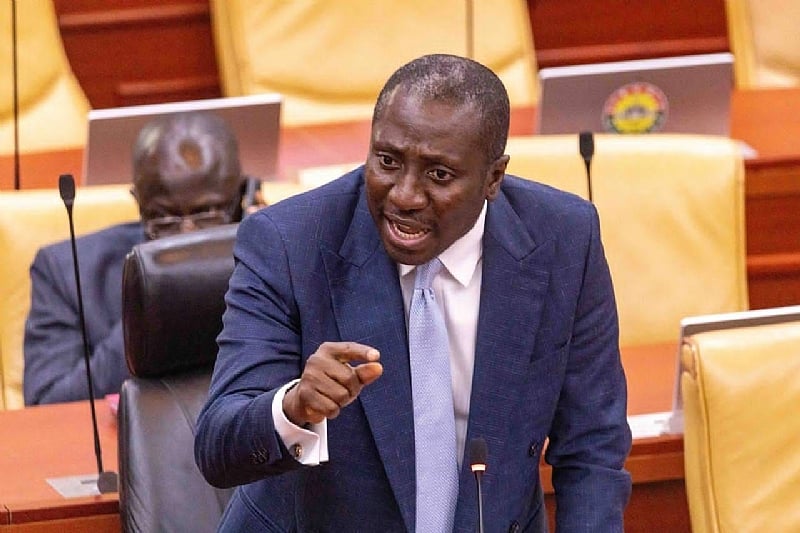Minority Leader in Parliament, Alexander Afenyo-Markin, has slammed President John Dramani Mahama’s directive to halt enforcement actions against 64 radio stations recently shut down by the National Communications Authority (NCA), describing the move as a “brazen assault” on the independence of regulatory institutions.
The NCA, acting within its statutory mandate under the Electronic Communications Act, today shut down dozens of radio stations for operating without valid authorisations—some for extended periods. But within hours of the enforcement action, President Mahama reportedly issued a directive ordering the NCA to halt its sanctions and restore the broadcast licenses of the affected media houses, including Asaase Radio and Wontumi FM.
In a strongly worded statement today, Afenyo-Markin condemned the President’s decision as a dangerous overreach of executive power and a clear violation of the principle of separation of powers enshrined in Ghana’s 1992 Constitution.
“This is not merely a disagreement over media policy,” Afenyo-Markin asserted. “It constitutes a fundamental breach of the separation of powers that the Constitution carefully establishes to prevent executive overreach and safeguard institutional autonomy.”
“In effect, the President has declared that regulatory law is optional when it conflicts with his political preferences,” the Minority Leader said.
Citing Sections 2(1) and 73(3) of the Electronic Communications Act, Afenyo-Markin stressed that the NCA was empowered by law to suspend or terminate licenses and issue cease-and-desist orders against violators. He warned that President Mahama’s interference undermines the authority of such statutory bodies and erodes public confidence in institutional independence.
“If such overreach is allowed to stand,” he warned, “what prevents future interference with the Bank of Ghana’s monetary policy decisions, the Electoral Commission’s enforcement actions, or the Environmental Protection Agency’s regulatory orders?”
While President Mahama has defended his directive as a move to safeguard press freedom, Afenyo-Markin argued that genuine media freedom is rooted in the rule of law, equal regulatory treatment, and protection from political interference—all of which, he said, were violated by the President’s action.
He called for an immediate reversal of the directive, a formal condemnation of the executive interference, and an investigation into how such an “egregious legal and constitutional breach” was allowed to happen.
“The question now facing our nation is clear,” Afenyo-Markin concluded. “Will Ghana defend its Constitution, or will it stand by as executive power erodes the independence of its institutions?”


